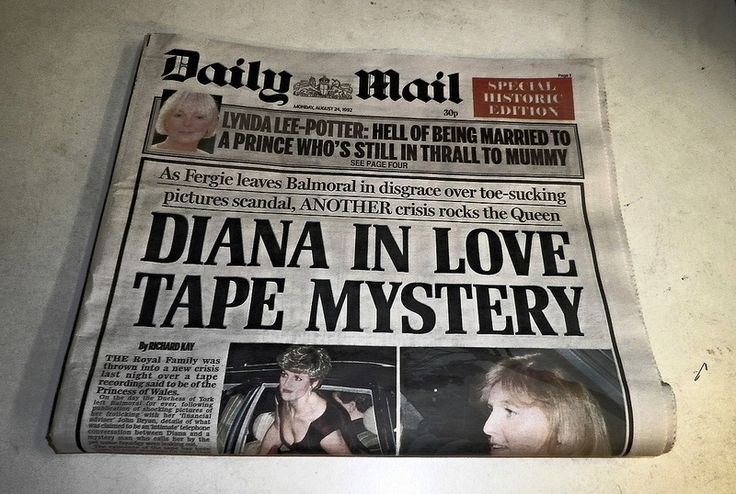
CASE STUDIES
Here are three case studies that highlight instances of privacy being breached in journalism.


PRINCESS DIANA SQUIDGYGATE SCANDAL
The Squidgygate scandal refers to the controversy over phone conversations between Princess Diana and her lover James Gilbert in 1990 which were published by The Sun newspaper. The Princess was married to the man who was then known as Prince Charles and who is now our King. During the calls, Gilbert affectionately called Diana by the name of "Squidgy", and the "-gate" suffix refers to a scandal. The 23 minute phone call between them was leaked to the media and breached Princess Diana's privacy, as it was a private conversation between two individuals. It exposed a vulnerable side of her emotional life, revealing her personal frustrations.
There are two ways of looking at this. On the one hand, it was very much in the public interest for somebody who should have become our next Queen to be scrutinised. This is especially true because she would only have become Queen because of who she was married to, so their relationship was relevant. On the other hand much of it was gossip and entertainment, and it caused her and her marriage harm. At times during the phone call, Diana made critical comments about the King, and their strained relationship. This added fuel to the public fascination with the royal couple's troubled marriage, which was already known to be deteriorating at the time. This incident raised concerns about the ethical practices of the press, particularly in the realm of celebrity journalism, where the lines between public interest and personal privacy become increasingly blurred unethically.
ASHLEY MADISON SCANDAL
Ashley Madison was a dating website that marketed itself as a platform for individuals seeking affairs even whilst married. In July 2015, hackers breached Ashley Madison's systems and extracted a vast amount of data on up to 36m users, including confidential details about member identities ,credit card transactions and private texts between the users. This data was then posted online for anyone to access. Not only ordinary people were affected but well known public figures and politicians had this very private information exposed. Naturally, the individuals whose information was published faced serious consequences such as public shaming, divorces, career consequences and more.
The media reported on this leak and often focused on the more famous or embarrassing parts of the information. They used the leaked data to create better headlines, making the story more appealing for the public. There is a dilemma: some of this information was in the public interest, such as revealing hypocrisy on the part of public figures who appealed to voters or to fans by pretending to be happily married. The question is: where do you draw the line? But in other cases this information wasn't in the public interest. These sorts of situations blur the line between public interest and personal privacy. This was one of the most extreme examples of private data being published for public consumption.

PUBLISHING OF J.K ROWLING'S ADDRESS (2008)
In 2008 J.K Rowling, the author of the Harry Potter series, suffered a serious invasion of her privacy when her home address was published by a British newspaper that no longer exists, The News of the World. The issue began when a reporter obtained and published J.K. Rowling's address, which was intended to remain confidential. This put her family in danger, so she was naturally outraged and sued them. This case was a reminder of the dangers of media invasions of privacy. Readers might have been interested to know where the famous author lived and what her house looked like, but there was no legitimate public interest served by this exposure and the publication was unjustifiable. There was no benefit to society and the story was intended to sell newspapers and gain clicks. This case highlights the ethical boundaries that should exist in journalism, especially when it comes to protecting individual's privacy and ensuring their safety.